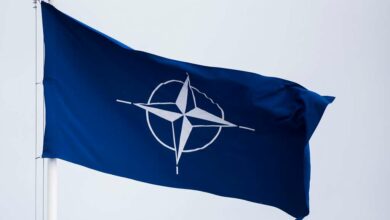On 3 October, a Syrian shell landed in the southeastern Turkish town of Akçakale, killing five members of the same family and wounding eight others — the first Turkish casualties of the 19-month-long civil war in Syria. Ankara, which has called for the ouster of Syria’s President Bashar al-Assad, fulminated. Calls for retaliation were in the air. There were warnings from Germany’s Angela Merkel and NATO’s Secretary General Anders Fogh Rasmussen; neither wanted Turkey, a NATO partner, to go to war, dragging NATO into the conflict. Turkey fired off a few shells in the direction of Idlib as a symbolic retaliation. Syria apologized and offered condolences for the Turkish dead.
Turkey’s parliament, the Meclis, passed a resolution that “authorizes the government for a year to send Turkish troops to foreign countries.” This is not a new direction for the Meclis. It has routinely offered this blanket permission for the Turkish military to operate in foreign countries, largely to battle the Kurdish Workers’ Party (PKK), which has bases in Iraq (and some redoubts in Syria).
The cross-border exchange of fire did not cease. Another Syrian volley came toward Akçakale on 6 October, with government forces trying to engage Syrian opposition groups based inside Turkey. According to the London-based Syrian Observatory of Human Rights, the Syrian government has lost control of 80 percent of the towns and villages along the Turkish-Syrian border. The Syrian military presence is relegated to a few military posts, one of which in Tal al-Abyad (Raqa province) was attacked by Turkish artillery on Friday, 5 October.
Over the course of the summer, Assad offered concessions to Syria’s Kurdish population, who live largely in the northern provinces. The Democratic Union Party (PYD), the main party of Syrian Kurdistan, has close links to the PKK, and is therefore against Turkey’s role in the region. What Assad did was create a rift between potential allies: the Syrian opposition then based in Turkey and the PYD, which is suspicious of Ankara. When the Turkish retaliation took place, the PYD said it would create protection units in northern towns to confront Turkish intervention. In response, the Turkish military reinforced its positions along the border.
Over the past decade, the PKK has reengaged the Turkish military near the Iran-Iraq-Turkey border knot and within Turkish Kurdistan. The violence claimed 700 lives this year. Anxiety about the escalation of the Kurdish resistance has made Turkish authorities jittery: if it intervenes in Syria, and if the PYD resists, will this intensify the PKK’s own attacks inside Turkey?
The cross-border violence was a test case for Damascus. It shows that, despite the entreaties of Ankara, the West is not willing to take advantage of a pretext to intervene. There are two reasons for this. First, there is the question of who follows Assad.
In the middle of the standoff over the border, Turkey’s Foreign Minister Ahmet Davutoğlu said Assad should depart and Vice President Faruq al-Shara, “a man of reason,” should take his place. In other words, Davutoğlu is advocating no regime change, only change in the leader. There is great worry in the West and in Israel about the aftermath of Assad’s rule, particularly if some variant of the Muslim Brotherhood comes to power. Israel has enjoyed a long period of calm with the Assad regime (there has been minimal conflict at the Golan Border, and, as far as Israeli intelligence is concerned, Assad has kept a firm hand on Hezbollah and its radicals). No such guarantees are on offer from the Brotherhood, which the West believes will dominate the inchoate opposition.
The second reason is the fear of witnessing another Libya. Both Qatar and Saudi Arabia have been providing weapons to the Syrian rebels. Washington has chilled these developments. The outbreak of violence in Libya showed that Western arms drops might also arm those who are against the West. Washington is uneasy with support of a rebellion that it does not seem able to control.
Turkey is in a difficult position. It has gone out on a limb against the Assad regime, but it has been a passive intervention. The West has refused to back Turkey with arms for an active intervention. NATO’s statement after Akçakale was under Article 4 of its charter (consultation) not Article 5 (call to arms). Because of this Western detachment, Turkey has tried to divest itself from the conflict, moving the Free Syrian Army to seek its headquarters in Syria rather than Turkey. But the shelling on 3 October has returned Ankara to the center of the Syrian imbroglio.
US officials believe Turkey will not intervene without NATO’s full backing. This has created a standoff between Ankara’s dignity and its capability. A nascent anti-war movement held a rally in Istanbul, with social media providing another venue to say #savasahayir (No to war). For the sake of the region, it is hoped this anti-war sentiment will strengthen, or that cooler minds will prevail in Ankara. It will not help the Syrian people, who have already buried 30,000 people, to have a war on the northern frontier. Syria needs peace, not an acceleration into catastrophe.
Vijay Prashad is the author of Arab Spring, Libyan Winter (AK Press, 2012). This article was written on 7 October 2012 and was originally published in Egypt Independent's weekly print edition.



